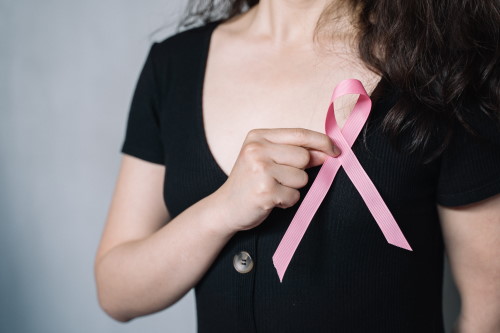Do you know someone battling breast cancer? According to MD Anderson Cancer Center it is the most common cancer found among women, affecting 1 in 8 American women. Even though each of us likely has some sort of personal experience with breast cancer, you may have misunderstood some of the information swirling through forums and news articles.
BREAKING: 72-Year Old Grandma's Anti-Aging Discovery Sweeps The Nation
Dr. Lida A. Mina, MD, associate director of the breast program at Banner MD Anderson Cancer Center, helps decipher: Is it a myth or a fact?
Myth: Having a family history of breast cancer increases my risk of getting the disease.
Fact: Family history can affect your breast cancer risk, although it is not the only risk to consider. Other risk factors include age, early menstruation, no pregnancies or pregnancies after the age of 30, obesity, dense breasts, radiation to the chest (such as chest X-rays) and genetic mutations. A family history that includes one or more of the following could mean you are more likely to get breast cancer:
- Someone diagnosed with breast cancer before age 50
- Someone with cancer in both breasts
- You or a family member with ovarian cancer
- A male with breast cancer
- Multiple family members with breast and/or ovarian cancers
- Ashkenazi Jewish ancestry
Myth: Women cannot breastfeed after having breast cancer.
Fact: A previous diagnosis of breast cancer alone does not impact a woman’s ability to breastfeed. However, some types of cancer treatments can have an effect. For example, breastfeeding after radiation therapy may be difficult because the radiation can harm the tissue needed for breastfeeding.
Myth: Men cannot get breast cancer.
Fact: About 2,500 men are diagnosed with breast cancer each year in the United States. Risk factors for male breast cancer include:
- BRCA mutations: Breast cancer is markedly increased in men with BRCA.
- Family history of breast cancer: The risk of breast cancer is doubled for men who have a parent, sibling or child with the disease.
- Age: As men age, their chances of developing breast cancer increases.
- Obesity
- Gynecomastia, or enlarged breasts caused by a hormone imbalance or certain medications
- Radiation exposure, often as part of treatment for another cancer
- Race: African-American men have a higher risk of male breast cancer than non-Hispanic white men.
Myth: Breast implants can cause breast cancer.
Fact: While breast implants cannot cause breast cancer, women with implants can still get breast cancer. You may consider getting a mammogram before, and within one year of getting implants so that you will have a baseline for future tests.
TRENDING: Shed 42 lbs In 30 Days With This Simple Night-time Pill
Myth: Wearing a bra with underwire, using antiperspirant or getting fertility treatments can increase my risk of getting breast cancer.
Fact: Dr. Mina says you can rest assured – none of these have been proven to increase your breast cancer risk.
There is a lot of information out there. We want you to understand the facts surrounding breast cancer so that you can confront it with confidence and knowledge.









